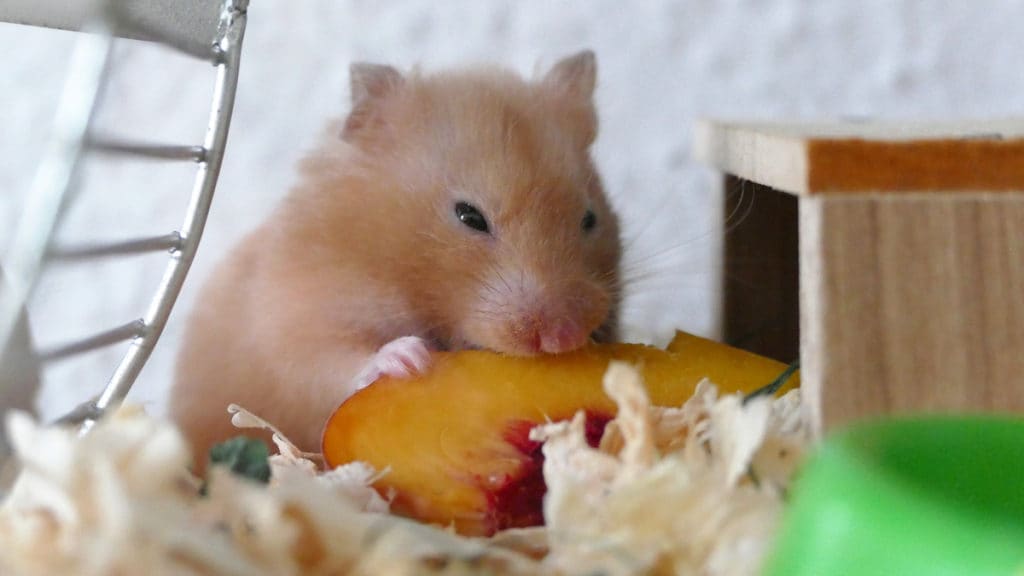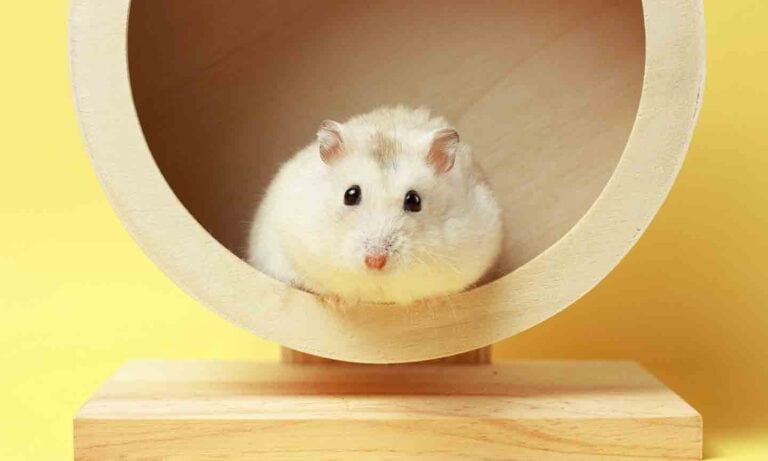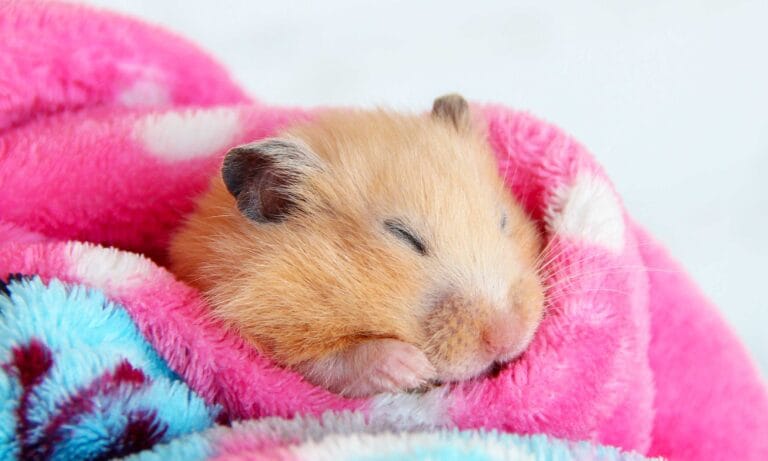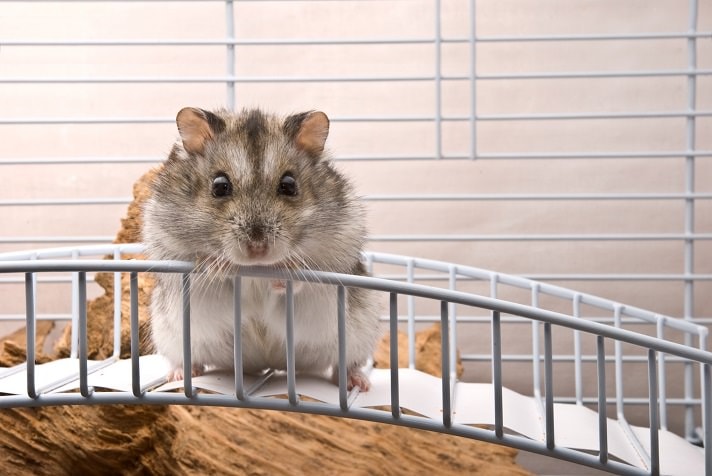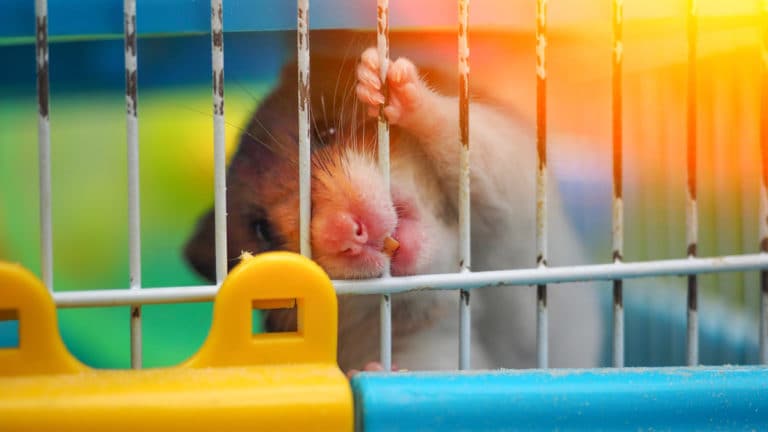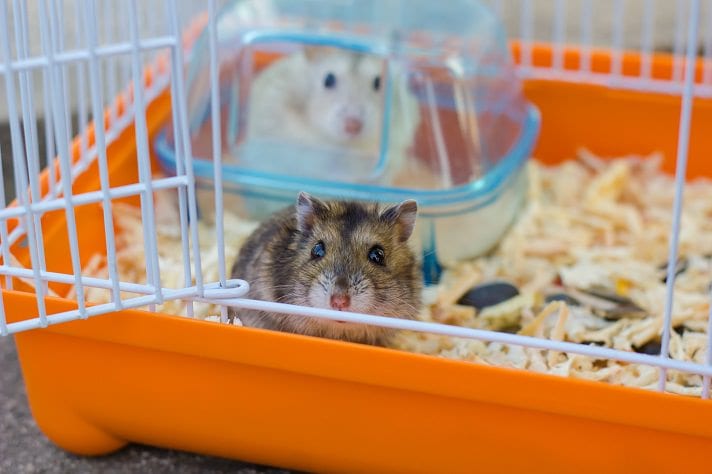What can hamsters eat? What can’t hamsters eat? You may be surprised to learn that some foods generally considered healthy and beneficial to your nutrition, like almonds, can be harmful to your hamster.
Small rodents, including hamsters, live very short lifespans. As such, it is vital to feed them properly to keep them with us as long as possible.
Feeding your hamster an unhealthy diet—even unintentionally—can increase the chance of her experiencing an early death from an illness like heart disease, diabetes or other nutritional-related ailments.
The first step to keep your furry friend in tip-top shape is to knowing what to feed—and what not to feed! Just because you can eat a food safely does not mean your hamster can as well.
What Can I Feed My Hamster?
Hamster food requires a diet with specific nutrients. A quality, pelleted diet, also called rodent block, is a good start. Oxbow and other brands offer quality foods for hamsters.
Other safe foods to share with your hamster in very small amounts—less than a fingernail-size portion and only a few times per week—include:
- Well-washed fruits and vegetables, such as blackberries, peaches and mango.
- Cereals and grains, such as whole wheat crackers, healthy breads and rolls, oats and cereals.
- Proteins, such as tofu, hard-boiled or scrambled eggs, and small amounts of lean chicken.
Always monitor your hamster closely. If she isn’t eating her healthy rodent block well or is developing soft stool, discontinue the extras and consult your veterinarian for advice.
Hamsters are wonderful small family members, but they must be fed properly to help them live long, healthy lives.
What Can’t Hamsters Eat?
Here is a list of foods to watch out for. Though you may be able to feed some of these foods in moderation to your hamster, follow the precautionary steps to ensure it won’t be hazardous or deadly for your pet.
- Almonds: Unroasted, bitter almonds contain cyanide, and all almonds are moderately high in fat. An occasional almond sliver is fine as a treat, but do not exceed one almond per week.
- Celery, whole stalks: The stringy texture can choke a hamster. Remove the strings and cut the celery into small pieces for a safer snack.
- Chocolate, particularly dark chocolate: It contains theobromine and is toxic in large amounts, which is easy to do with the tiny, sweet-toothed hamster.
- Garlic: This can cause indigestion and blood disorders in moderate amounts.
- Kidney beans, uncooked: These are toxic to hamsters; do not feed!
- Lettuce, iceberg: It contains little in the way of nutrition and can cause diarrhea. Small amounts of other green leafy vegetables, such as dandelion greens, romaine lettuce and kale, are much safer and more nutritious options.
- Onion: It may result in damage to the red blood cells.
- Peanuts: They are too high in fat for hamsters, and the salted variety may contribute to dehydration. One unsalted, human-grade peanut a week is safe to feed your hamster.
- Potato, potato tops: These are unsafe, but sweet potato is OK.
- Spicy or seasoned products: These may upset your hamster’s intestinal tract, resulting in diarrhea.
- Sugary products: Hamsters may choose to eat these empty calories instead of their healthier foods, and excess can lead to diabetes.
- Tomato leaves: These are toxic to hamsters.
- Unwashed fruits or vegetables: Because of pesticides, unwashed fruits and vegetables pose a danger to your hamster. Organic forms are safer, particularly if you wish to feed the skins as well.
All and all, avoid foods that are loaded with seeds and nuts because both are very high in fat and are unhealthy as a diet staple. Also, shy away from foods with visible fruit in them—if you see the “extras,” they are in an unhealthy quantity.
Share:
